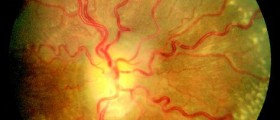
High blood pressure is one of problems that may arise in pregnancy and about 5 to 8% of all pregnant women suffer from gestational hypertension. This increase of blood pressure should be differentiated from hypertension which existed before pregnancy, a condition known as chronic hypertension.
Gestational hypertension is diagnosed in pregnant women whose blood pressure is over 140/90mm Hg. This usually happens after 20 weeks of pregnancy, during which these women had completely normal and healthy blood pressure. The condition may further develop into preeclampsia or even eclampsia.
Preeclampsia or toxemia (as it is also known) is diagnosed if the woman experiences: heightened blood pressure and high level of protein in the urine.Preeclampsia is more frequent in young women, carrying their first child, but it is also frequently found in twin pregnancies. Women over 35 years of age, especially if they are of African-American origin and those women who have diabetes or chronic hypertension or had hypertension in previous pregnancy may also develop preeclampsia. Eclampsia is even more serious condition. It usually develops near the end of pregnancy in 1 out of 1.600 pregnant women and women may experience seizures due to this medical problem.
Another serious complication of severe preeclampsia and eclampsia is HELLP syndrome, characterized by numerous physical changes in a woman’s body. This condition may be responsible for breakdown of red blood cells, low platelets and problems with the liver.
Causes of Gestational Hypertension
As already mentioned, gestational hypertension is more common in women who already suffer from chronic hypertension or who had hypertension in previous pregnancy. Future moms older than 40 or younger than 20 years of age are also exposed to greater risk of developing this condition. Women suffering from diabetes or some kidney problems, as well as those pregnant with several babies and carrying twins or triplets also have higher chances to suffer from gestational diabetes.
Symptoms and Prevention
High blood pressure in pregnancy may be associated with different symptoms, besides elevation of blood pressure. Women may experience nausea, vomiting, abdominal pain, protein in urine, swelling, sudden increase of weight, vision problems or changes in functioning of the liver and kidneys.
Untreated gestational hypertension may cause problems with various organs in the body, including the brain, uterus, placenta, kidneys and the liver. Women may suffer from placental abruption, poor fetal growth or stillbirth. Babies and mother may also experience some serious seizures and in some cases this problem is associated with lethal consequences.
The risk of gestational hypertension may be the reason for preterm delivery of the child. Early diagnosis of high blood pressure in pregnancy is known to prevent some possible complications of this medical condition. Women should know to recognize the symptoms of the disease and seek for medical assistance when required.

















Your thoughts on this
Loading...